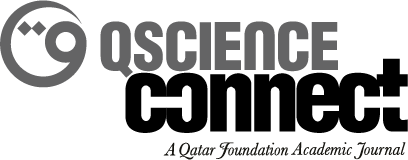-
oa Video Reflexive Ethnography for Social Sciences Research in the Middle East
- Source: QScience Connect, Volume 2022, Issue Issue 3- Medical Humanities in the Middle East Conference, Aug 2022, 25
-
- 31 August 2022
Abstract
Background: Humanistic approaches to healthcare are required to facilitate positive patient-healthcare provider relationships and health outcomes. Researching these humanistic approaches can be challenging as social interactions are complex by nature. Recognition of complexity in social interactions requires a move away from simple, linear methodologies towards methodologies that can embrace and harness complexity to answer research questions.
Video Reflexive Ethnography: Video Reflexive Ethnography (VRE) is a novel and proactive research approach which recognises the complexity of everyday social situations. VRE aims to not only generate understanding but also improves practice. It does this by engaging participants and researchers in a collaborative process of reviewing video footage to gain new insights and interpretations about everyday practices. This process can empower participants to improve and change their practices. VRE has not been widely used as a research approach in the Middle East and the acceptability of these techniques for participants in the Middle Eastern context is unknown. At The Hashemite University in Jordan, we used VRE to explore medical students’ practices of receiving feedback about their clinical communication. We will detail the principles of VRE using the research from Jordan as an illustrative example.
Principles of Video Reflexive Ethnography:
VRE does not have a prescriptive set of procedures but allows for flexible application of four VRE principles to guide the research process:
• Exnovation (a combination of the words excavation and innovation) – watching video-footage turned medical students’ and our attention to habits - purposeful or unconscious - that inform behaviours during feedback interactions about clinical communication simulations.
• Collaboration – working collaboratively with medical students allowed for different perspectives to be fully explored in the research. This resulted in co-construction of the research and knowledge generating process. This approach was empowering and gave meaningful results to the medical students themselves.
• Reflexivity – video footage enabled a complex activity, such as feedback, to be re-played and viewed by medical students and ourselves. Familiar routine activities could be seen as unfamiliar activities of interest. Multiple meanings and interpretations were found as medical students viewed themselves as others might and discussed what was shown and what they saw. Reflexivity has the potential to improve feedback practices and to give medical students increased agency to change behaviours of which they were not previously aware.
• Care – maintaining respect and considering emotions and power dynamics for medical students and ourselves throughout the research process, to facilitate honest discussions about video footage.
Conclusion: We found VRE to be a useful, acceptable research approach for healthcare education research in the Middle East context. Medical students engaged with the research process, consented to be video recorded and eagerly contributed to discussions when reviewing video footage. Notably, certain feedback practices were highlighted by reviewing video footage, that students mentioned that they would use in future feedback encounters. Using VRE in the Jordanian context generated new understanding and also facilitated learning, as students engaged with the process, and moved towards change in feedback practices.


